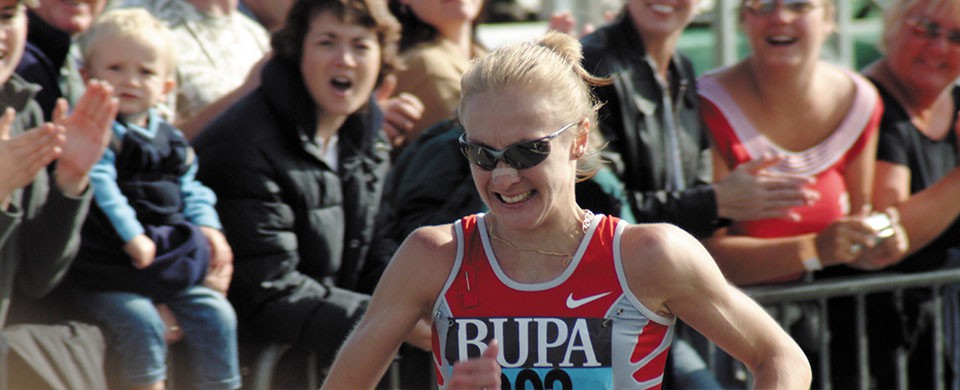Why I decided not to help the Sunday Times
Paula Radcliffe has my sympathy. I have no way of knowing for sure that she is innocent, but – as well as admiring her achievements – I am convinced by her detailed rebuttal of the Sunday Times’s blood doping coverage and its implication she cheated.
But how do you disprove a negative? And how can you counter innuendo and suspicion?
Last week I was approached by the Sunday Times to help them mount a sting with the aim of exposing a Welsh rugby player for using or dealing in steroids. The inducement they offered of coverage for Over The Line was attractive for a debut author, and I do know several steroid-infested gyms used by lower-level rugby players, among others.
But I have misgivings about the Sunday Times and the way they are tackling this issue, which I have expressed previously on this website.
I agree the athletics governing body, IAAF, has a case to answer on its effectiveness in combating doping, but the recent Sunday Times coverage buried the crucial fact that the number of abnormal blood tests has dropped by more than 75% since the biological passport was introduced in 2009 – an inconvenient point that would have made their story far less sensational.
But Paula Radcliffe’s situation raises a different and more far-reaching ethical question. As her statement rightly emphasises, the misuse and misinterpretation of stolen confidential medical records puts innocent athletes at risk and could undermine the cause of catching true offenders.
The Sunday Times reports admitted in passing that abnormal tests are not themselves proof of doping, but the much bigger problem for their story is that it is utterly meaningless without knowing how each test was conducted or the full medical history of every athlete involved.
There is little doubt that among the thousands of blood tests leaked to the paper, some are from athletes who have used blood doping, but the paper’s advisers have no way of knowing which tests are abnormal because of doping and which are distorted by testing flaws or an individual athlete’s circumstances.
In two of the three Radcliffe tests, the blood was taken immediately following races, which would not happen now because the anti-doping authorities have introduced a two-hour rule to avoid tests being influenced by hot conditions and de-hydration.
“Furthermore”, she says in her statement, “they were all conducted following prolonged periods of altitude training, which is today recognised as significantly impacting blood figures, and is therefore taken into account when interpreting blood data.”
The Sunday Times will mount what’s known as a ‘public interest’ defence to justify breaching confidentiality laws and implying reputation-damaging wrongdoing. That would have some validity if the paper was demonstrably trying to do more than serve its own commercial interest.
When I was approached, I offered the journalist several alternatives to mounting a sting, including introducing them to the bereaved father of a young man who had used steroids and a doctor who had taken up the issue of health problems faced by former rugby players who had used steroids. I do not know if those people would have agreed to be interviewed or whether they would have told the Sunday Times everything they have told me, but the journalist wasn’t interested anyway.
Paula Radcliffe says the Sunday Times tried to obtain the consent of athletes to publish their stolen medical data, and she accuses them of asserting behind the scenes that ‘if consent isn’t given it will look like the athlete has something to hide’.
This is the classic no-win, prove-yourself-innocent situation of people who find themselves trying to counter trial by media.
In Over The Line, the central character, Megan, is an athlete around whom a cloud of suspicion has descended because personal connections come to light that link her to the world of steroids. Megan’s coach, Liam, knows little about her past and is wrong-footed by media coverage of events that happened several years earlier.
Agonising over it early in the book, he says to himself: “Megan had put her trust in me. And, at that moment, what could I do but hope my trust in her wasn’t misplaced?”
In this case, when it comes to choosing whether to trust the Sunday Times or Paula Radcliffe, I think you will have guessed by now where I stand.
Steve Howell
Steve Howell is author of Over The Line and a former news and sports journalist.
Over The Line in paperback (£7.99) is on sale at Waterstones and other bookshops or online via this website (post free), Amazon or www.gwales.com. A Kindle edition of Over The Line is available at £4.99 on Amazon.
Order paperback edition at £7.99 here – ORDER
Order Kindle edition at £3.49 via Amazon – ORDER
Photo credit: Guy Erwood / Shutterstock.com

